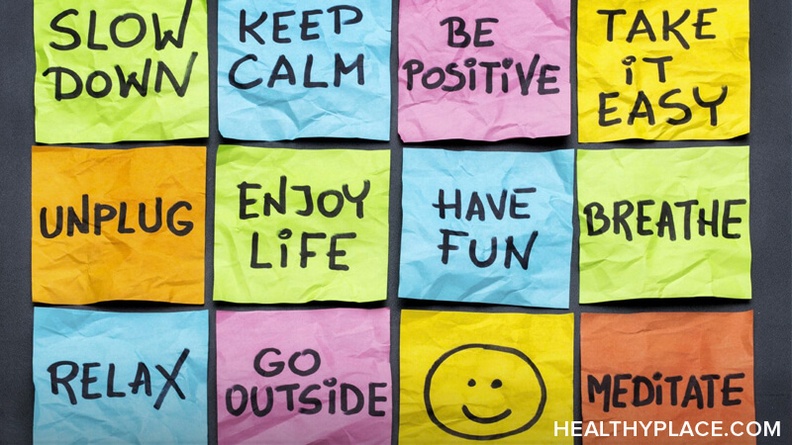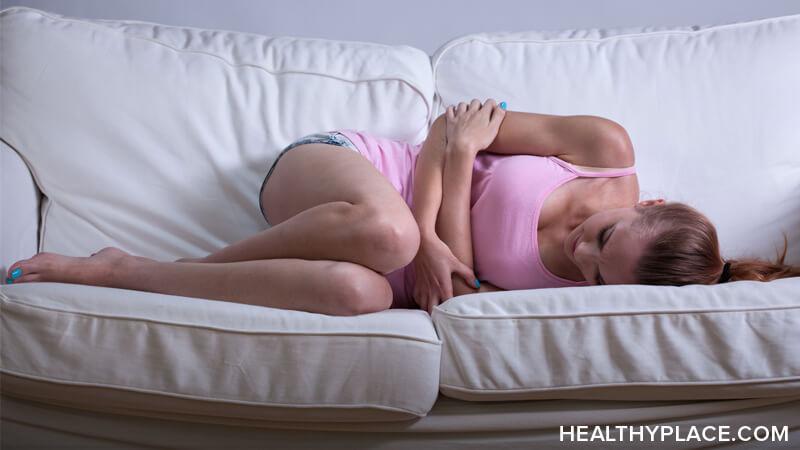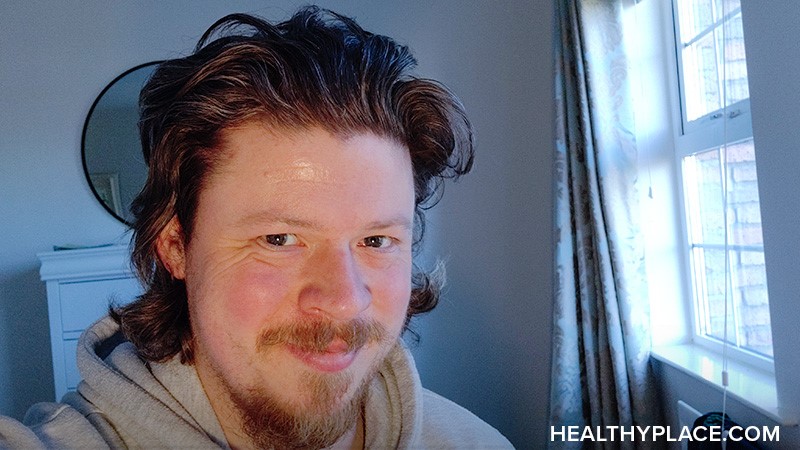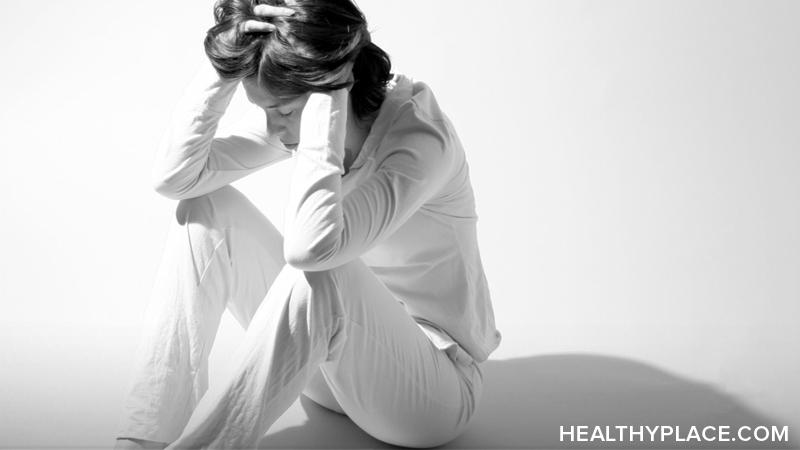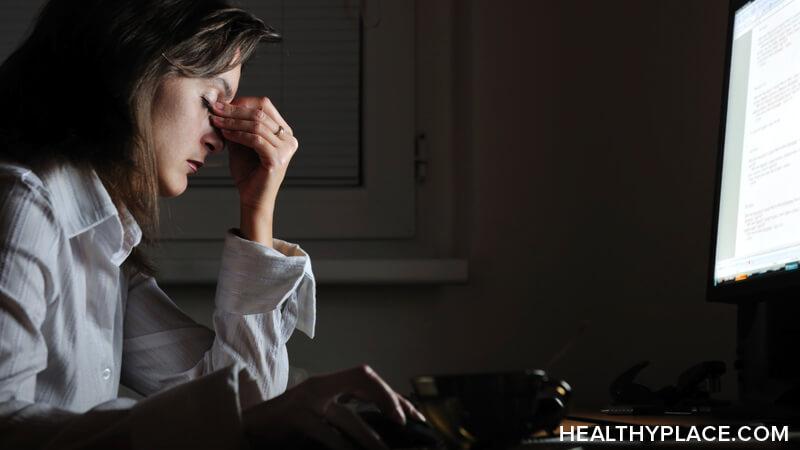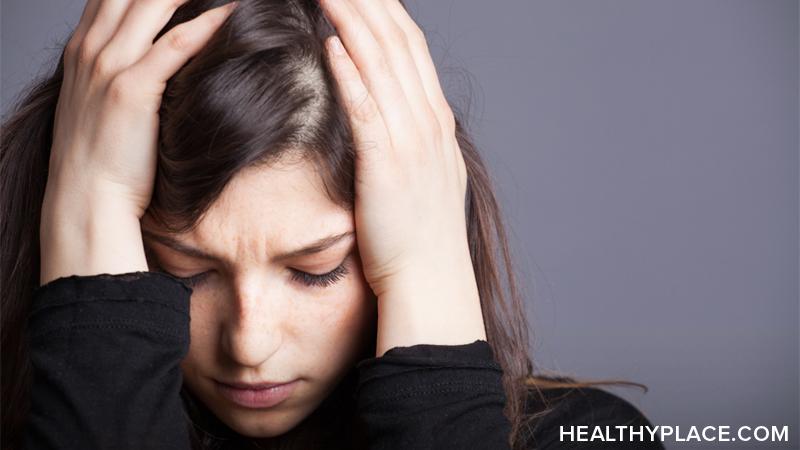Does Mindfulness Improve Mental Health or Is It Fluff?
Here's What's Happening at HealthyPlace This Week:
- Does Mindfulness Improve Mental Health or Is It Fluff?
- From the HealthyPlace Mental Health Blogs
- Anxiety Can Cause Fatigue and Exhaustion: Here's What to Do
- Most Popular HealthyPlace Articles Shared by Facebook Fans
- Motivational Quote

Mindfulness is currently a mental health buzzword. Some people claim that living mindfully brings instant inner peace and makes us impervious to problems. In reality, this isn’t what mindfulness is about. It can, however, make a positive difference in our lives.
Mindfulness is a way of living life and of being with yourself and others. Simplified, it involves paying attention to something in your present moment instead of thinking about the past or the future. Mindfulness can, but doesn’t have to, involve meditation. Meditation is a formal practice of concentration with a defined starting and stopping point, whereas mindfulness involves paying attention to whatever you are doing as you are going about your daily life.
Paying attention to the present moment has mental health advantages. It’s the opposite of ruminating and worrying. It can also be motivating, inspiring you to do what you can, one thing at a time. In focusing the mind and facilitating small actions, mindfulness can help people deal with difficult situations and mental health challenges.
This approach to life is not a cure-all or a quick fix, however. Being mindful doesn’t change the past or make you forget about upsetting events and emotions. Its power is greater than that. By choosing to focus on your moment itself rather than your thoughts and feelings about it, which are rooted in the past or future, you take charge of your life, again and again. This helps keep you centered so you can deal thoughtfully with the problems and challenges that arise, which is the epitome of mental health.
Recommended Video
Anxiety makes it hard to practice self-care because it fills your mind with negative thoughts, worries, and fears. In this video, get practical information on how to quiet anxiety so you can practice the self-care you need. Watch.
Related Articles Dealing with Mindfulness
- Using Mindfulness for Anxiety: Here’s How
- Why Should You Begin a Mindfulness Practice?
- Live Life Now: Living in the Present Moment
- How Using Mindfulness for Depression Helps You Get Well
- Why Take A Mindfulness Meditation Course?
- 5 Tips for Practicing Mindfulness
Your Thoughts
Today's Question: If you practice mindfulness, in what ways has it helped your mental health? We invite you to participate by sharing your thoughts, experiences, and knowledge on the HealthyPlace Facebook page.
------------------------------------------------------------------
From the HealthyPlace Mental Health Blogs
On all our blogs, your comments and observations are welcomed.
- How Are Binge Eating and Overeating Different?
- Eating Disorder Recovery Is a Series of Both Ebbs and Flows
- Sharing Your Identity Helps Build Self-Esteem
- The Power of Music on Your Mental Health
- Using Self-Harm to Escape Overwhelming Circumstances
- Abuse and Self-Stigma: Break Free for Your Mental Health
- The Pandemic Isn't Through with This Schizoaffective
- Mental Health Stigma in Higher Education
- You Don't Have to Be an Alcoholic to Want Sobriety
- Schizophrenia and Self-Harm
- Work-Life Balance Protects Me from Mental Health Burnout
- Finding My Biological Family Is Helping My Emotional Health
- Why I Love Quiz Shows When I'm Stressed
- Mental Illness Puts Thoughts in Your Head -- Judging Them
- What to Do When Depression Makes You the Black Sheep at Work
- How Caffeine Affected My Anxiety
- The Healing Power of Self-Harm Recovery Poems
- My Reluctance to Use Psychiatric Medication
- Anxiety and Postpartum Depression
- Finding a Good IOP for Schizophrenia
- Overdoing It with Bipolar Comes with a Hefty Price
Feel free to share your thoughts and comments at the bottom of any blog post. And visit the mental health blogs homepage for the latest posts.
------------------------------------------------------------------
From the HealthyPlace YouTube Channel
Do you know how to cope when your anxiety causes exhaustion and fatigue? Watch this for tips.
Subscribe to the HealthyPlace YouTube channel
------------------------------------------------------------------
Most Popular HealthyPlace Articles Shared by Facebook Fans
Here are the top 3 mental health articles HealthyPlace Facebook fans are recommending you read:
- Dissociative Identity Disorder Controversy: Is DID Real?
- Causes of Depression: What Causes Depression?
- Traumatic Events and How to Cope
If you haven't already, I hope you'll like us on Facebook too. There are a lot of wonderful, supportive people there.
------------------------------------------------------------------
Motivational Quote
“Never confuse a single defeat with a final defeat.” ~ F. Scott Fitzgerald
Read more motivational quotes.
------------------------------------------------------------------
That's it for now. If you know of anyone who can benefit from this newsletter or the HealthyPlace.com site, I hope you'll pass this onto them. Please share the newsletter on any social network you belong to. For updates throughout the week, follow us on Twitter, like us on Facebook, subscribe to our YouTube channel, or follow us on Instagram.
Thank you,
Deborah
Community Partner Team
HealthyPlace.com - America's Mental Health Channel
"When you're at HealthyPlace.com, you're never alone."
http://www.healthyplace.com
APA Reference
Peterson, T.
(2022, February 15). Does Mindfulness Improve Mental Health or Is It Fluff?, HealthyPlace. Retrieved
on 2025, November 12 from https://www.healthyplace.com/other-info/mental-health-newsletter/does-mindfulness-improve-mental-health-or-is-it-fluff
